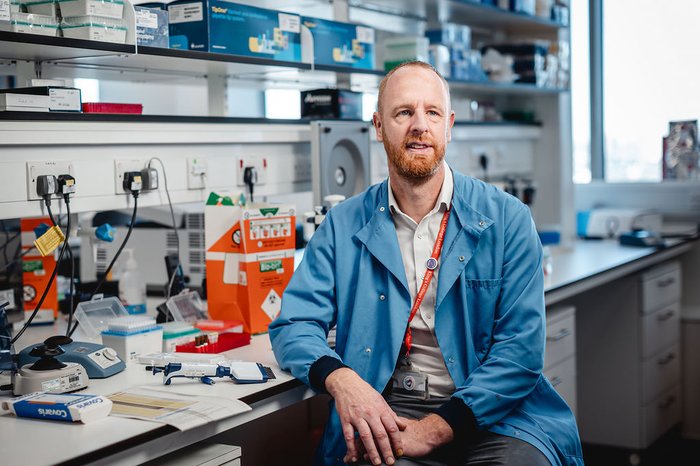Reducing the need for chemotherapy in people with acute myeloid leukaemia
In this project, Dr Dillon will look for markers in DNA that will tell clinicians if someone with AML is likely respond to a drug called venetoclax.
The challenge
Acute myeloid leukaemia (AML) is an aggressive type of blood cancer with limited treatments options and a poor outlook. At the moment, chemotherapy is the only treatment that offers to hope of a cure, however this treatment can cause severe side effects. We urgently need to find new and kinder treatments for people with AML.
The project
VICTOR is a clinical trial taking place across the UK trying to understand whether we can spare people with AML from toxic chemotherapy and treat them with a drug called venetoclax instead. However, we don’t yet know which patients will respond to venetoclax and which patients require a more intense chemotherapy.
In this project, Dr Richard Dillon and his team will take samples from people who are taking part in the VICTOR trial, and will try their DNA to find markers that would indicate that their cancer would have a good or bad response to the drug venetoclax.
The future
This project could help identify people with AML who could be treated and cured from their disease with venetoclax. This would mean they no longer require chemotherapy, sparing them from the associated side effects and improving their quality of life.

